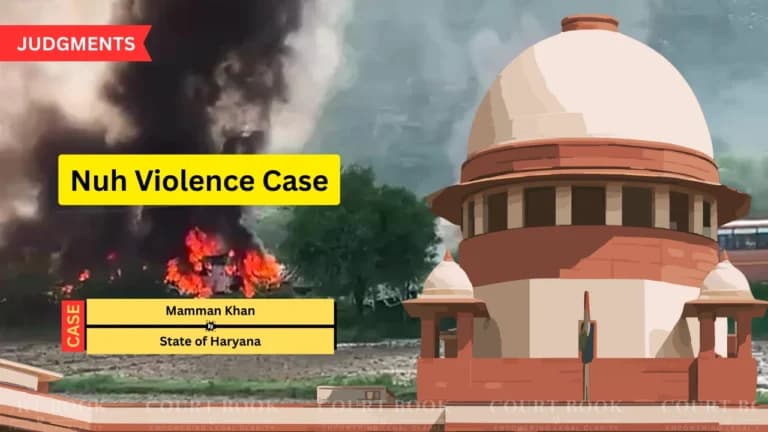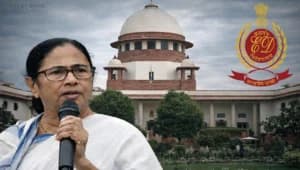New Delhi, Sept 12—The Supreme Court on Thursday set aside a Haryana trial court’s order that had split the criminal trial of sitting MLA Mamman Khan from that of his co-accused in the 2023 Nuh communal violence cases. A two-judge bench of Justices J.B. Pardiwala and R. Mahadevan ruled that separating Khan’s trial “solely on account of his political office” violated basic fairness and equal treatment under the law.
Background
Khan, the legislator from Ferozepur Jhirka, was named along with dozens of others in two FIRs after large-scale communal clashes erupted in Nuh district on 31 July 2023. The charges ranged from rioting and conspiracy to dacoity and arson. Despite common witnesses and evidence, the Nuh trial court last year ordered the police to file a separate charge sheet against Khan, citing repeated delays caused by absconding co-accused and a Supreme Court directive to prioritise cases against elected representatives. The Punjab and Haryana High Court upheld that decision in December 2024.
Read also: Supreme Court Quashes Karnataka’s Seizure of ITC Classmate Notebooks, Flags Major Procedural
Court’s Observations
“The segregation was directed solely on account of the appellant’s status as an MLA,” the bench noted, calling the move “arbitrary” and a breach of Article 21’s guarantee of a fair trial. The judges stressed that the Code of Criminal Procedure allows joint trials when offences arise from the same incident, especially where evidence and witnesses overlap.
“The trial court inverted the settled principle,” the bench observed, adding that the proper course would have been to proceed against absconding accused separately rather than isolating Khan. The Court also faulted the trial judge for acting suo motu without giving Khan prior notice, remarking, “Mere presence of counsel cannot be equated with a meaningful opportunity of hearing.”
Read also: Supreme Court Clears Path for Real Estate Projects, Rules State Bodies Can Grant Environmental Clearances
Decision
Setting aside the High Court and trial court orders, the Supreme Court directed that Khan be tried jointly with his co-accused. “All accused stand equal before the law, and preferential segregation militates against the equality principle of Article 14,” the bench said. The matter now returns to the Nuh sessions court for a combined trial, with instructions to ensure speedy yet procedurally fair proceedings.
Case: Mamman Khan v. State of Haryana
Decision Date: 12 September 2025














